Who Was Abdullah ibn Sa'd ibn Abi Sarh - Religion - Nairaland
Nairaland Forum / Nairaland / General / Religion / Who Was Abdullah ibn Sa'd ibn Abi Sarh (4075 Views)
Iran Prophecy "The Coming Is Upon Us" (mahdi) King Abdullah / Abortion Is A Sin, But Sex Is Not Abi / Ehen, Christmas Is Over, See You Same Time Next Year, Abi? (2) (3) (4)
| Who Was Abdullah ibn Sa'd ibn Abi Sarh by tidytim: 10:53pm On Jan 03, 2012 |
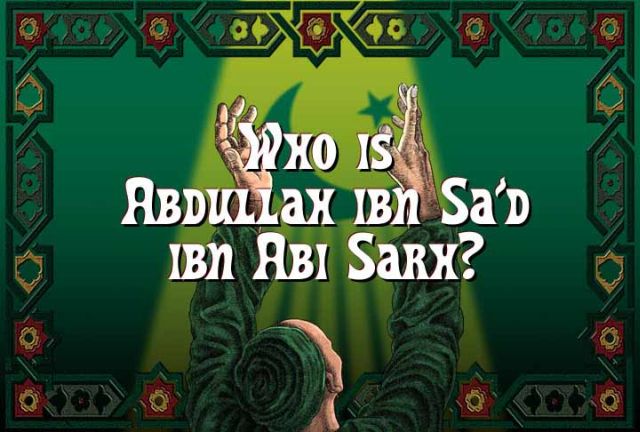 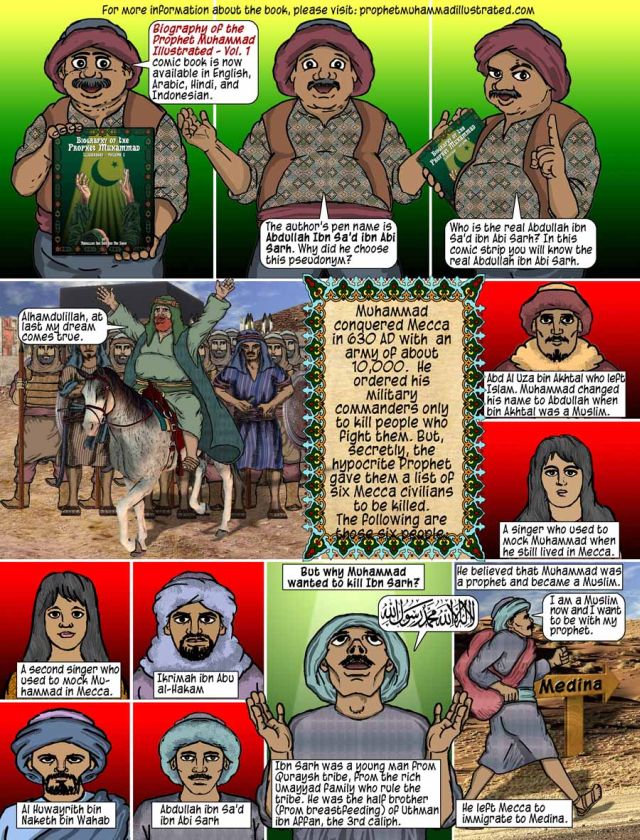 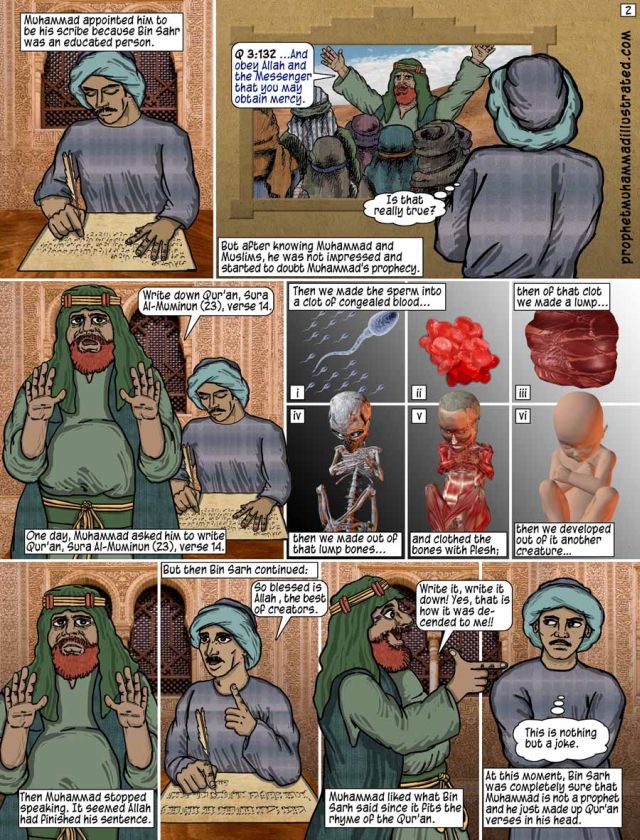 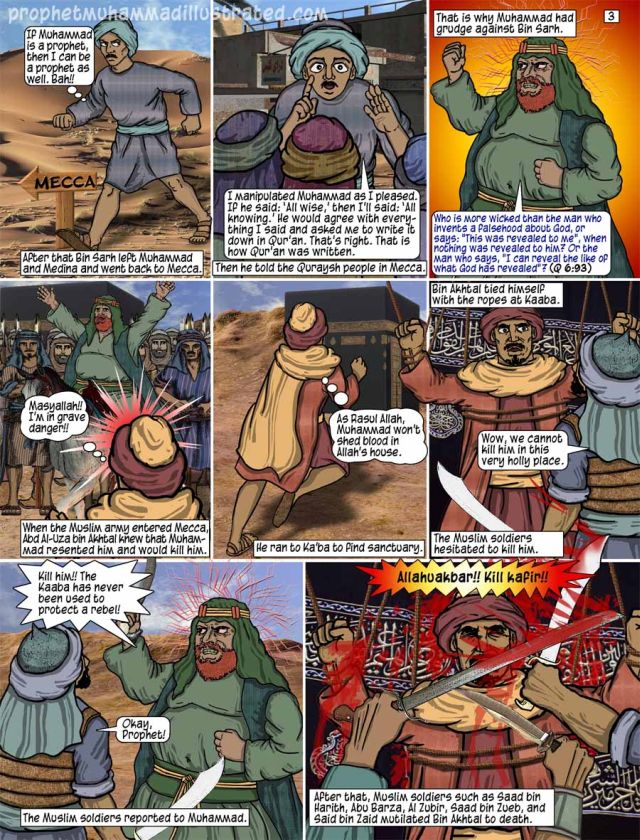 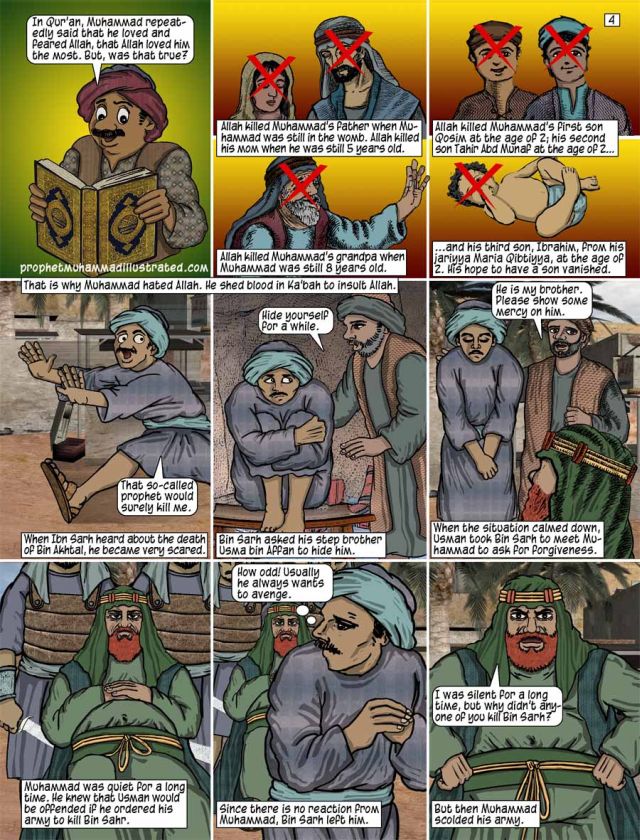 |
| Re: Who Was Abdullah ibn Sa'd ibn Abi Sarh by tidytim: 11:55pm On Jan 03, 2012 |
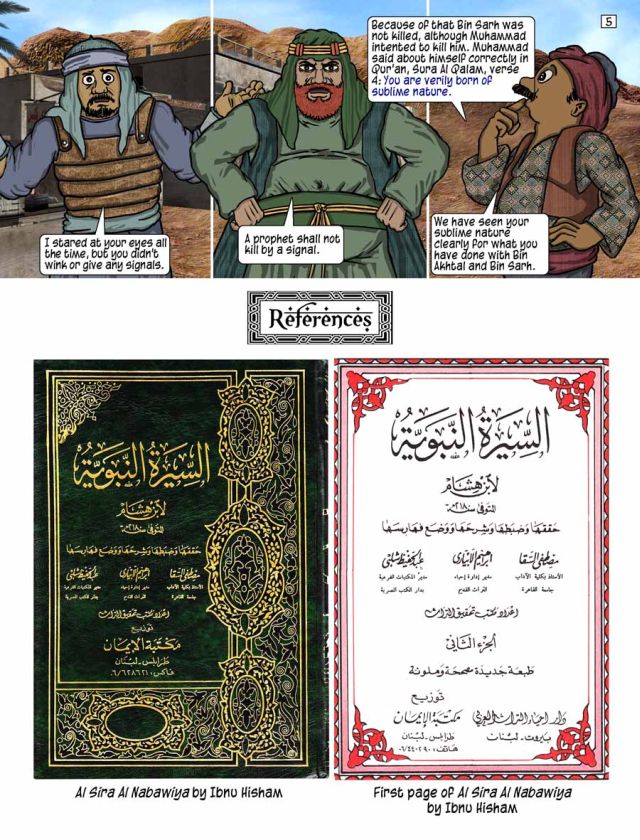 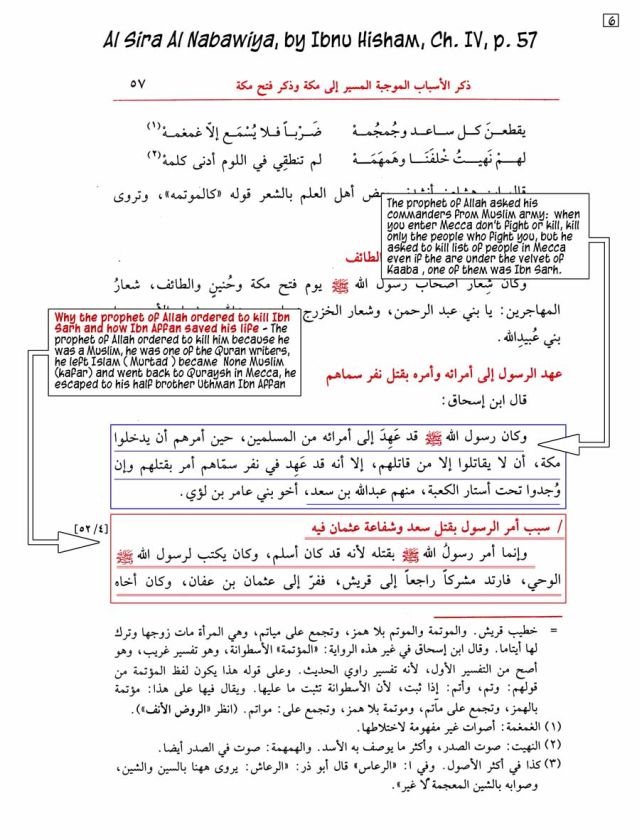 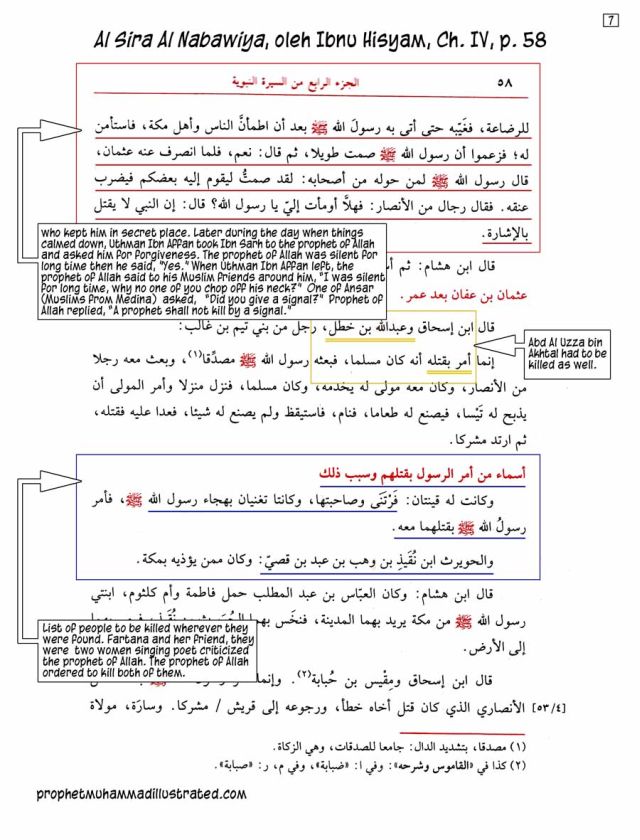 |
| Re: Who Was Abdullah ibn Sa'd ibn Abi Sarh by tidytim: 11:57pm On Jan 03, 2012 |
| Re: Who Was Abdullah ibn Sa'd ibn Abi Sarh by tidytim: 12:04am On Jan 04, 2012 |
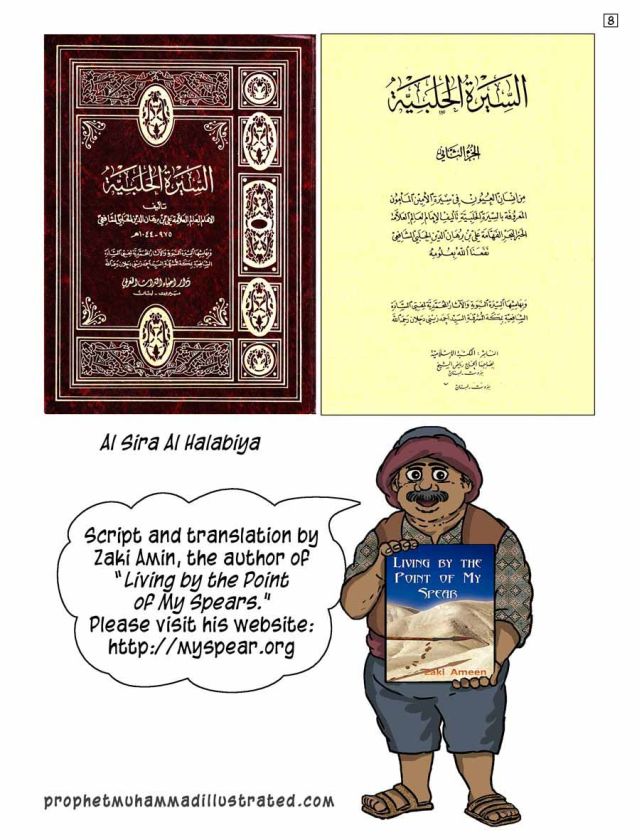 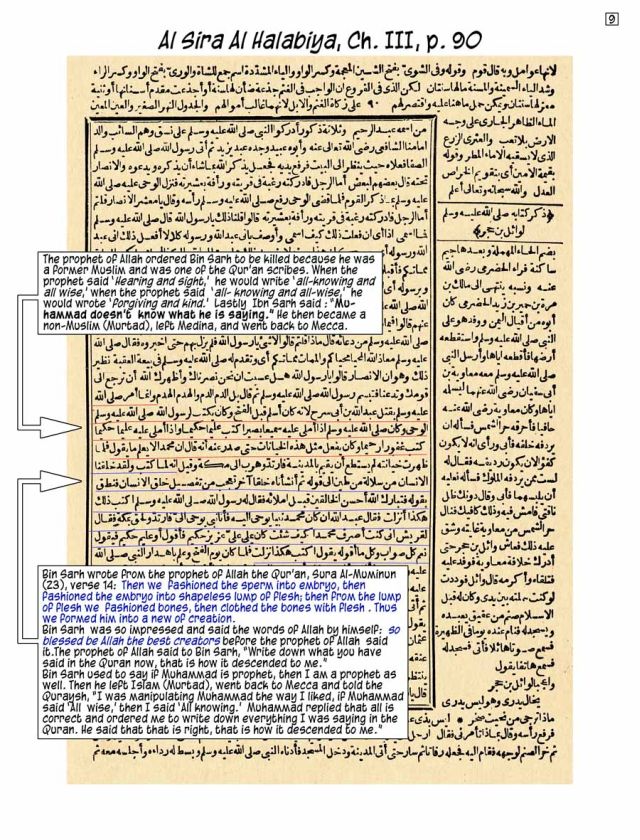 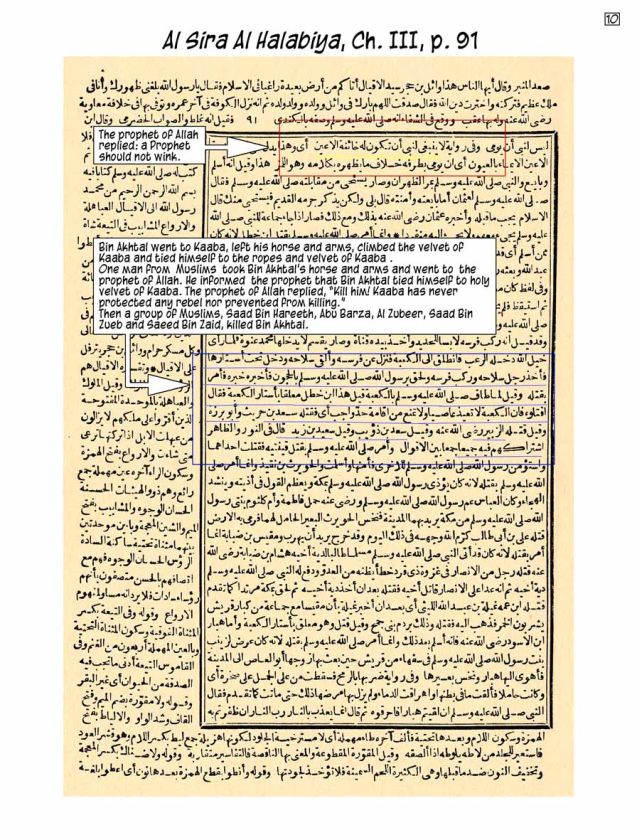 |
| Re: Who Was Abdullah ibn Sa'd ibn Abi Sarh by LagosShia: 12:13am On Jan 04, 2012 |
Abdullah Ibn Sad Ibn Abi Sarh: Where Is the Truth? Peace be upon those who follow the guidance: This article is meant to answer the claims put forward by the Christian missionaries. The author of that article claims that cAbdullâh Ibn Sâd Ibn Abî Sarh, one of the scribes of the Prophet Muhammad(P), has contributed to the Qur'ânic text. Let us examine the references used by the author to support his claims and sort out his arguments in the light of famous Islamic resources. The author of the criticism says: Sarh left Islam and lived in Mecca. Some time later, Muhammad and his army moved on Mecca and took it without a fight. Then in the passage quoted from the translation of Sîrat Rasulillah, he went on saying about Ibn Abî Sarh: then he apostatized and returned to Quraysh [Mecca] He also reported from al-Baidawî commenting on the the verse 6:93 that the reason that triggered apostasy of cAbdullâh Ibn Sâd Ibn Abî Sarh was the revelation of the verse 23:12. The following is the translation of Baidawî's report proposed by the critic: 'To me it has been revealed', when naught has been revealed to him" refers to 'Abdullah Ibn Sâd Ibn Abi Sarh, who used to write for God's messenger. The verse (23:12) that says, "We created man of an extraction of clay" was revealed, and when Muhammad reached the part that says, ", thereafter We produced him as another creature (23:14), 'Abdullah said, "So blessed be God the fairest of creators!" in amazement at the details of man's creation. The Prophet said, "Write it down; for thus it has been revealed." 'Abdullah doubted and said, "If Muhammad is truthful then I receive the revelation as much as he does, and if he is a liar, what I said is a good as what he said." The above claim can be summed up as follows: cAbdullâh was one of the scribes of the Prophet(P). Upon the revelation of the verse 23:12 and his anticipation on the end of the verse 23:14, he thought that he received the revelation as much as the Prophet(P) and he doubted in the prophethood of Prophet Muhammad(P). Therefore, he apostatized and returned to Quraysh [Mecca] where he sought refuge. Apostacy of Ibn Sarh In the beginning of our study, we have to determine whether he apostatized before the Hijrah, i.e., in Mecca or after the hijrah, i.e., in Medina. The author of the criticism says that cAbdullâh returned to Quraysh [Mecca] and the word he put between [ ] implies that he returned to Mecca. As a matter of fact, there is an entire science dedicated to the study of the life of the companions of the Prophet and the later generations of Muslims who were involved in the transmission of hadîth. This science is called cIlm al-Rijâl (i.e., the Science of the Folk). One of the biggest references in that field is Usûd Ulghâbah fi Ma'rifat Is-Sahâbah by Ibn al-Athîr. In the entry concerning cAbdullâh Ibn Sâd Ibn Abî Sarh we find the following: The above excerpt reads: He converted to Islam before the conquest of Mecca and immigrated to the Prophet(P) [i.e. in Medina]. He used to record the revelation for the Prophet(P) before he apostatized and went back to Mecca. Then he told Quraysh: 'I used to orient Muhammad wherever I willed, he dictated to me "All-Powerful All-Wise" and I suggest "All Knowing All-Wise" so he would say: "Yes, it is all the same."[1] From the above quotations of Usûd Ulghâbah, no doubt remains concerning the conversion of cAbdullâh Ibn Sâd Ibn Abî Sarh: he embraced Islam after the Hijrah and joined the Muslims in Medina. Thus, his apostasy occurred later which means it occurred in Medina. cUlûm al-Qur'ân & Revelation The "Science of Qur'ân" (in Arabic cUlûm al-Qur'ân) has fortunately conveyed lots of valuable details about the revelation of the Holy Qur'ân including the reason of the revelation (in Arabic Asbâb un-Nuzûl which is usually a certain event that motivated the revelation of some verses of the Qur'ân) and even the places where such and such verse or chapter of the Qur'ân were revealed to the Prophet(P). Note that the verses revealed in Mecca are called Meccan verses and the ones revealed in Medina are called Medinite verses. The main reference used in this article as to cUlûm al-Qur'ân is Al-Itqân fî cUlûm il-Qur'ân by Jalaluddîn al-Suyûtî. Concerning Chapter 6 (from which the verse 6:93 is quoted), many reports support the fact that it was entirely revealed in Mecca. They also go on saying that this Chapter was escorted by 70,000 angels when Gabriel carried it down to the Prophet(P). Refer to Al-Itqân, Section 13: What was revealed scattered and what was revealed in one unit,[2]. One may also refer to Al-Itqân, Section 14: What was revealed with an escort and what was revealed alone[3]. Consequently, the opinion the verse 6:93 addressed cAbdullâh Ibn Sâd Ibn Abî Sarh falls flat on its face. Many commentators convey reports that the revelation of the verse 6:93 addressed Musaylamah al-Kadhdhâb of al-Yamâmah and al-'Ansy of Yemen, both of them having claimed prophethood at that time. For the sake of completeness, we will quote some more information given in Al-Itqân. According to Ibn as-Salâh in his Fâtawi: The report that conveys the revelation of Chapter 6 entirely in one unit was given from the way of Ubayy Ibn Ka'b, it is weak in its isnâd (i.e. the chain of narration), and I have never seen a trustful (Sahih) isnâd for this tradition. Many traditions even said the contrary i.e. several verses of Chapter 6 were revealed later in Medina. They differed on the number of these verses whether they are 3 or 6 or some other number, and God knows best.[4] So, some reports concerning Chapter 6 classify several verses as Medinite verses. These reports differed on the number of verses: a report on the authority of Ibn cAbbas excludes 3 verses (6:151 to 6:153), others say 6 verses (the previous ones + 6:91 + 6:93 & 6:94- they also say that the last two verses concern Musaylamah). Other reports exclude two verses only, for example 6:20 & 6:114. They also differ on Asbâb un-Nuzûl of the verses excluded as they either concern Musaylamah or a Jewish Rabbi of Medina or other reasons. So, not withstanding what is said in the previous paragraph, we will not close the case yet because of the slight doubt about Asbâb un-Nuzûl of verse 6:93. According to the critic, the revelation of verse 23:12 and the amazed anticipation of cAbdullâh Ibn Sâd Ibn Abî Sarh on the end of verse 23:14 triggered his apostasy. Many books about the cUlûm al-Qur'ân have made an accurate classification of the Chapters and verses that were revealed in Mecca (those are called Meccan verses or Chapters), and the ones revealed in Medina (those are called Medinite). According to Al-Itqân, we learn that the full Chapter 23 (i.e., Sûrat al-Mu'minûn) is Meccan. Refer to pages 17-21 where many reports confirm the revelation of Chapter 23 in Mecca with no exception of any single verse.[5] Obviously, this report quoted from al-Baidawi is a gross fabrication since cAbdullâh Ibn Sâd Ibn Abî Sarh embraced Islam after the revelation of Chapter 23. When we add to the above the fact that the full quotation from al-Baidawî was not put forward by the critic even when we asked for it, and given the fact that the reports are stated without the chains of transmission, the authentication of such a report is impossible. Moreover, a comparison to other commentaries of the Qur'ân (such as the commentaries of al-Qurtubî[6] and at-Tabarî[7]) mentioning the same report provide disrupted chains of transmission. That is why the claim of the critic based on the report of al-Baidawî looses conclusively all its value. What Does Sirah Of al-cIraqî Actually Say? Now let us look into the argument quoted from Is the Qur'ân Infallible? by cAbdullâh cAbd al-Fad. The translation provided by the critic is: The scribes of Muhammad were 42 in number. 'Abdullah Ibn Sarh al-`Amiri was one of them, and he was the first Quraishite among those who wrote in Mecca before he turned away from Islam. He started saying, "I used to direct Muhammad wherever I willed. He would dictate to me 'All-Powerful, All-Wise' [the critic has wrongly translated 'Aziz by Most-High which is in Arabic 'Aliyy, it seems that he confused it with the previous word 'Alayya which means "to me"], and I would write down 'All-Wise' only. Then he would say, 'Yes it is all the same'. On a certain occasion he said, 'Write such and such', but I wrote 'Write' only, and he said, 'Write whatever you like.'" So when this scribe exposed Muhammad, he wrote in the Qur'an, "And who does greater evil than he who forges against God a lie, or says, 'To me it has been revealed', when naught has been revealed to him." The rest of the English translation go further than what is stated in Arabic, so we will not quote it here. However, it is available at the original site. The above argument is presented by the critic as a "quotation from as-Sîrah by al-'Iraqî". First of all, there are many people by the name of al-'Iraqî but the author does not say which al-cIraqî is mentioned here. Fortunately, God guided us to the source of this claim: Alfiyyat us-Sîrat in-Nabawiyyah by al-Hâfidh al-cIraqî. In fact, al-Hâfidh al-cIraqî has wrote the Sîrah in a piece of poetry of 1000 verse called Alfiyyat us-Sîrat in-Nabawiyyah. Here is the relevant quotation:[8] In the first verse of the above quotation (i.e. verse 780 in the poem), al-Hâfidh al-'Iraqî starts by saying that the scribes of the Prophet(P) were 42. Obviously, this detail links Alfiyyat us-Sîrat in-Nabawiyyah to the argument stated by the critic. The above quotation consists of twelve verses mentioning various scribes of the Holy Qur'ân among the most known. cAbdullâh Ibn Sâd Ibn Abî Sarh is not mentioned yet. In the verse 786, al-Hâfidh al-cIraqî says: And I added from various accounts on Sîrah a lot of people, it is for you to verify and check. This means clearly that not all that is mentioned is to be taken blindly. Al-Hâfidh al-cIraqî is making a simple compilation of what he found leaving the verification for the reader. Then al-Hâfidh al-cIraqî goes on with his list: In verses 796 to 798, al-Hâfidh al-cIraqî says: They mentioned three who wrote [for the Prophet] and apostatized: Ibn Abî Sarh and Ibn Khatal and another one whose name is unknown. No one of them returned to the religion [Islam] except Ibn Abî Sarh while the others strayed from the right path. A minimum of objectivity is enough to understand that al-Hâfidh al-cIraqî does not back up such claims. He is merely reporting accounts and asks the people interested in them to take upon themselves the burden of verification. When we give a second look to the argument of the critic, we see clearly that he is putting words in the mouth of al-cIraqî. He is using the passage al-cIraqî himself doubts in the tone of established facts. This is called twisting facts to serve one's goal. It has nothing to do with objectivity, let alone the claimed honesty or the quest of the Truth. Al-Hâfidh al-cIraqî in his Alfiyyat us-Sîrat in-Nabawiyyah does not assert for sure that cAbdullâh Ibn Sâd Ibn Abî Sarh was a scribe of the Prophet(P). He also states clearly that the scribes who apostatized had gone astray. Therefore, he cannot contradict himself by saying what the critic is putting in his mouth. Consequently, in the absence of the source of such claims, we dismiss this argument unless the critic provides us with its source stated fully and correctly. Discussion 1) What do we know about cAbdullâh Ibn Sâd Ibn Abî Sarh? He embraced Islam after the Hijrah while Muslims were living in Medina. We don't know the year exactly. He probably had the opportunity to write for the Prophet(P). He apostatized but the reason stated in many accounts (i.e. verse 23:12) is not consistent because it goes against many established reports in the cUlûm al-Qur'ân. He returned to Islam and was a good Muslim. Indeed, here is what is said about him quoted in the commentary of al-Qurtubî[9]: For the convenience of our non-Arabic speaking audience, the full translation to English of the above report is also available. In the above quotation, we read a similar report to Baidawî's. However, the report gives more details about cAbdullâh Ibn Sâd Ibn Abî Sarh. Indeed, the report says: According to Abû Omar, "cAbdullâh Ibn Sâd Ibn Abî Sarh converted back to Islam during the conquest of Mecca and his Islam was fine, and later, his behavior was beyond reproach. He was among the wise and the noble from Quraysh, and was the knight of Banî 'Aamir Ibn Lu'ayy was respected among them. Later, 'Uthmân named him to govern Egypt in the year 25 H. He conquered Africa in the year 27 H and conquered Nuba in the year 31 H and he was the one who signed with the Nubites the armistice that is still valid today. He defeated the Romans in the battle of as-Sawaary in the year 34 H. When he returned from his advent, he was prevented from entering al-Fustât [the capital of Egypt], so he went to 'Asqalân where he lived until the murder of cUthmân(R). It was also said: he lived in Ramlah until he died away from the turmoil. And he prayed Allah saying: "O Allah make the prayer of subh the last of my deeds. So he performed wudu and prayed; he read Surat al-Fâtihah and al-'Aadiyât in the first rak'ah and read al-Fâtihah and another sûrah in the second rak'ah and made salâm on his right and died before he made salâm on the left side. All this report was conveyed by Yazîd Ibn Abî Habîb and others. He didn't pledge allegiance to cAlî nor to Mu'âwiyah (RR). His death was before the people agreed on Mu'âwiyah. It was also said that he died in Africa, but the correct is that he died in 'Asqalân in the year 36 H or 37 H and it was rather said 36 H. In a nutshell, Ibn Abî Sarh embraced Islam after the Muslims had immigrated to Medina. He took the trouble to migrate to Medina where he became one of the scribes of the Prophet. For an unknown reason, he apostatized and went back to Mecca. He is supposed to have told the Meccans that he changed the Qur'ân according to his own will. This seems to be very predictable for someone in his situation seeking the favours of the Meccans whom he betrayed not a long time before. Then the above report states what is reported in Sîrat Rasulillah and in at-Tabaqât al-Kabîr as well: cAbdullâh was among the bunch that had to be executed but he could benefit of cUthmân's intercession and he kept his life safe. Though the beginning of his Islam was unstable (he migrated then apostatized then converted back to Islam in a very short time), he became a good Muslim and was even made the commander of Muslim troops. A report conveyed by 'Ikrimah in the commentary of at-Tabarî about verse 6:93 says that 'Abdullah Ibn Sâd Ibn Abî Sarh converted back to Islam before the conquest of Mecca by the Prophet(P).[10] This means that he converted back to Islam willingly without the shadow of any pressure. Of course, like all the reports involved in this case, the transmission of this report is disrupted. 2) Did cAbdullâh Ibn Sâd Ibn Abî Sarh contribute to the Qur'ân? There is no factual proof for such a horrendous claim. The claim about Chapter 23 proved to be a fabrication because it was revealed before cAbdullâh Ibn Sâd Ibn Abî Sarh became a Muslim. If we take into account the most admitted opinion among the Qur'ânic scholars, the entirety of Chapter 6 is Meccan. Consequently, the verse 6:93 is not revealed in regard of Ibn Abî Sarh but rather in regard of Musaylamah and al-'Ansy and more generally in regard of anyone who claims prophethood falsely. Moreover, if the scribes were allowed to contribute to the Qur'ân, how can the critic explain that among the 42 scribes there is only one (cAbdullâh Ibn Sâd Ibn Abî Sarh) who was bothered about it? Didn't the others feel uneasy about such a thing if it ever happened? Of course, it is out of the question that the Prophet of God(P) allow such contribution because it is claimed many times in the Qur'ân that the Holy Book is dictated upon revelation and any contribution to it must be of divine inspiration. 3) The author of the criticism asks: If this story about Sarh were a fabrication, why did so many early Muslim writers document it? Certainly devout Muslims would not document a lie that serves to undermine their faith. This is the best question raised in the whole argument. Its answer is implied in the quotation of al-Hâfidh al-cIraqî in his Alfiyyat us-Sîrat in-Nabawiyyah. Many of the early writers were concerned by the compilation only. Fearing that the material available could be lost, they collected whatever reports they could find without authenticating them. They left the authentication process to the following generations as it is clearly stated in the following excerpt of Alfiyyat us-Sirat in-Nabawiyyah by al-Hâfidh al-cIraqî: In the verses 5 & 6, he says: Let the seeker of knowledge know that Sîrah collects every account whether true or false. But the intention is to mention all that is conveyed in the books of Sîrah regardless of the isnaad. (i.e., the authenticity of the chains of narration) A devout Muslim does not need to twist the facts to protect his faith especially when an authentication process existed even in the early stages of Islam. A whole Science is concerned with the reliability of the narrators based on their life and their moral values. That is why many people could compile many reports leaving the authentication procedure to the ones who followed them. In reality, if all the early scholars cared about authenticating every report they heard of, a lot of the material available today would be lost. Unlike Muslims, some people, unaware of the Science of Hadîth and the "Knowledge of the Folk" when venturing into the Islamic references alone without a teacher, encounter great hardship digesting all the material available. Others, more wicked, use the same characteristic of the early references to lead innocent people astray. But, with God's help and protection, their dark plans are always unveiled. As for the author of the critic, we would rather refrain from classifying him in either category. The readership may judge him and only God can tell what his real intentions are. 4) If cAbdullâh Ibn Sâd Ibn Abî Sarh really deserved to be executed according to a Law, why did the Prophet(P) accept the intercession of cUthmân? This is a trick question. However, it also shows that the author of the criticism is either ignorant in the field of Islamic Law or his goal is to deceive as many people as he can. In terms of Islamic Law, there are two categories of crimes. The ones named by God (such as murder, theft, fornication etc.) to which He defined the proper punishment "Hudood"(the singular is 'Hadd'). And the ones not named by God, their evaluation and their punishment (called ta'dhîr) are left for the judgment of the sovereign. Provided that the reports of Sîrat Rasulillah and at-Tabaqât al-Kabîr are correct, the case of cAbdullâh Ibn Sâd Ibn Abî Sarh is simply about the sovereign (Prophet Muhammad(P)) making a decree against a criminal (cAbdullâh Ibn Sâd Ibn Abî Sarh) then upon the intercession of a third party (cUthmân Ibn 'Affân), the sovereign agrees to give amnesty to the criminal. Given that the punishment is originally left to the sovereign, a subsequent change in the judgment especially forgiveness cannot be criticized. Conclusions After the above study, the claims that the Holy Qur'ân has been tainted by Ibn Abî Sarh do not hold water. One thing is sure. We do not know a lot about the beginning of the faith of Ibn Abî Sarh. It was apparently unstable. However, later, he converted back to Islam and his faith was beyond reproach. The question raised about the change in the judgment concerning Ibn Abî Sarh denotes of real ignorance of the Islamic Law or a crooked intention of deception. If the goal behind that criticism was the quest of the Truth, then by God's will the above elaboration is likely to be enough for the author of the criticism to retract it. And Allah knows best. http://www.islamic-awareness.org/Quran/Sources/Sarh/ |
| Re: Who Was Abdullah ibn Sa'd ibn Abi Sarh by LagosShia: 12:19am On Jan 04, 2012 |
"Rebuttal to "Muhammad and the Ten Meccans": http://answering./2008/12/14/rebuttal-to-muhammad-and-the-ten-meccans/ |
| Re: Who Was Abdullah ibn Sa'd ibn Abi Sarh by tidytim: 1:26am On Jan 04, 2012 |
Sources of the Qur'an Contributions by `Abdullah ibn Sa`d Ibn Abi Sarh Abstract Muhammad had scribes write his revelations down for him. One scribe was Abdullah Ibn Sa'd Ibn Abi Sarh. As Sarh wrote these revelations down, he frequently made suggestions on improving their wording. Muhammad often agreed and allowed the changes to be made. Eventually, Sarh left Islam, knowing it could not be from God if a mere scribe were allowed to change God's word. Later, after the conquest of Mecca, Muhammad ordered Sarh's death. Introduction During Muhammad's 23 years of prophetic ministry, Muhammad claimed to receive revelations from God, given to him by an angel. Muhammad used many men, functioning as scribes, to write down these assumed revelations. Different scribes wrote down different revelations. `Abdullah Sarh was one of Muhammad's scribes. Evidently, Sarh had some literary skills, sometimes suggesting improvements to Muhammad in the wording of the recited Qur'an. Muhammad often agreed with Sarh's improvements, and allowed the changes to be made. Sarh eventually left Islam because he knew that no mere scribe should be allowed to change something that was proclaimed to be the word of God. The changes were frequent enough that it caused Sarh to realize that something was amiss. Upon leaving Islam, Sarh became a threat to the credibility of the Qur'an. It would no longer be believed to be the word of God if a man had been allowed to edit and change it. Sarh's threat to the credibility of the Qur'an was also a threat to Muhammad's credibility. No real prophet would allow the word of God to be changed. Sarh left Islam and lived in Mecca. Some time later, Muhammad and his army moved on Mecca and took it without a fight. On that day, Muhammad ordered the murder of 10 people living in Mecca. Muhammad said "God forbid killing in Mecca, except for this one day." Sarh was one of the people Muhammad ordered to be murdered. His crime? He had left Islam, and he constituted a threat to the credibility of the Qur'an and the prophethood of Muhammad. No wonder then that Muhammad wanted him dead. PRESENTATION OF ISLAMIC SOURCES #1 SIRAT RASUL ALLAH Quoting from "The Life of Muhammad", A Guillaume's a translation of Ibn Hisham's "Sirat Rasul Allah", from page 550: [words in brackets [ ] are mine] The apostle had instructed his commanders when they entered Mecca only to fight those who resisted them except a small number who were to be killed even if they were found beneath the curtains of the Ka`ba. Among them was `Abdullah b. Sa`d, brother of the B. `Amir b. Lu'ayy. The reason he ordered him to be killed was that he had been a Muslim and used to write down revelation; then he apostatized and returned to Qurahysh [Mecca] and fled to `Uthman b. `Affan whose foster brother he was. [`Uthman was one of Muhammad's closest friends, and later became the Caliph of Islam]. The latter hid him until he brought him to the apostle after the situation in Mecca was tranquil, and asked that he might be granted immunity. They allege that the apostle remained silent for a long time till finally he said yes, [granting `Abdullah immunity from the execution order]. When `Uthman had left he [Muhammad] said to his companions who were sitting around him, "I kept silent so that one of you might get up and strike off his head!" One of the Ansar [Muhammad's helpers from Medina] said, then why didn't you give me a sign, O apostle of God?" He [Muhammad] answered that a prophet does not kill by pointing. NOTE: the Sirat Rasul Allah is the earliest and most authentic biography of Muhammad. It was even written before the Hadith were compiled. #2 KITAB AL-TABAQAT AL-KABIR [Note: words in [ ] brackets are mine]. I have also added ( ) brackets to associate numbers with the people in the list. Muhammad ordered the execution of 10 people when he took Mecca. Here is the list of names found in Ibn Sa`d "Tabaqat", Vol 2, page 168. The apostle of Allah entered through Adhakhir, [into Mecca], and prohibited fighting. He ordered six men and four women to be killed, they were (1) Ikrimah Ibn Abi Jahl, (2) Habbar Ibn al-Aswad, (3) Abd Allah Ibn Sa`d Ibn Abi Sarh, (4) Miqyas Ibn Sababah al-Laythi, (5) al-Huwayrith Ibn Nuqaydh, (6) Abd Abbah Ibn Hilal Ibn Khatal al-Adrami, (7) Hind Bint Utbah, (8 ) Sarah, the mawlat (enfranchised girl) of Amr Ibn Hashim, (9) Fartana and (10) Qaribah. Occasionally, the Sirat, and the Tabaqat use a different name for the same person. #3 in the list given above is such a case. The differences in the name is due to the amount of family lineage given for the man's name, and the english translation. Ibn Sa`d corroborates Ibn Ishaq and says on page 174: A person of al-Ansar had taken a vow to kill Ibn Abi Sarh [the already mentioned Abdallah] if he saw him. `Uthman whose foster brother he (Ibn Abi Sarh) was, came and interceded for him with the prophet. The Ansari was waiting for the signal of the prophet to kill him. `Uthman interceded and he [Muhammad] let him go. The the apostle of Allah said to the Ansari, "Why did you not fulfil your vow?" He said, "O apostle of Allah! I had my hand on the hilt of the sword waiting for your signal to kill him." The prophet said signalling would have been a breach of faith. "It does not behave the prophet to make signal." NOTE ON THE TABAQAT: The Tabaqat was translated into English by Moinul Haq, a Pakistani. His work was published by the Pakistan Historical Society. It is published in English in two volumes. The title means "Book of the Major Classes". It is basically a biography of Muhammad. #3 From Al-Sira by al-'Iraqi The scribes of Muhammad were 42 in number. `Abdallah Ibn Sarh al-`Amiri was one of them, and he was the first Quraishite among those who wrote in Mecca before he turned away from Islam. He started saying, "I used to direct Muhammad wherever I willed. He would dictate to me 'Most High, All-Wise', and I would write down 'All-Wise' only. Then he would say, 'Yes it is all the same'. On a certain occasion he said, 'Write such and such', but I wrote 'Write' only, and he said, 'Write whatever you like.'" So when this scribe exposed Muhammad, he wrote in the Qur'an, "And who does greater evil than he who forges against God a lie, or says, 'To me it has been revealed', when naught has been revealed to him." So on the day Muhammad conquered Mecca, he commanded his scribe to be killed. But the scribe fled to `Uthman Ibn `Affan, because `Uthman was his foster brother (his mother suckled `Uthman). `Uthman, therefore, kept him away from Muhammad. After the people calmed down, `Uthman brought the scribe to Muhammad and sought protection for him. Muhammad kept silent for a long time, after which he said yes. When `Uthman had left, Muhammad said "I only kept silent so that you (the people) should kill him." The above quotation in both English and Arabic is from the respective edition of Is the Qur'an Infallible? by `Abdallah `Abd al-Fadi, Order Number VB 4009 E, Light of Life, P.O. Box 13, A-9503 Villach, Austria. The book is availabe in English, and the original Arabic edition. Al-Iraqi refers to Sura 6:93 above. From Dawud's translation Sura 6:93 reads: Who is more wicked than the man who invents a falsehood about God, or says: "This was revealed to me", when nothing was revealed to him? Or the man who says, "I can reveal the like of what God has revealed"? #4 Al-Baidawi commenting on the Qur'an, Sura al-An`am 6:93 "'To me it has been revealed', when naught has been revealed to him" refers to `Abdallah Ibn Sa`d Ibn Abi Sarh, who used to write for God's messenger. The verse (23:12) that says, "We created man of an extraction of clay" was revealed, and when Muhammad reached the part that says, ", thereafter We produced him as another creature (23:14), `Abdallah said, "So blessed be God the fairest of creators!" in amazement at the details of man's creation. The prophet said, "Write it down; for thus it has been revealed." `Abdallah doubted and said, "If Muhammad is truthful then I receive the revelation as much as he does, and if he is a liar, what I said is a good as what he said." Quoted from the famous Tafsir Anwar al-Tanzil wa Asrar al-Ta'wil by `Abdallah Ibn `Umar al-Baidawi. DISCUSSION Above I presented the details and the context behind the order to murder `Abdullah ibn Sarh. He was a threat to the credibility of the Qur'an. He was a Muslim, worked with Muhammad in writing down the Qur'an, and, from time to time he suggested some minor changes, or made deliberate omissions or additions. `Abdullah eventually realized that if this Qur'an were truly from God, no changes would be made at his suggestion. Sarh realized Islam and the Qur'an were false and went back to Mecca. After Muhammad took Mecca, and issued the order to kill him, he hid out with `Uthman who was one of Muhammad's closest companions. Later Sarh pled for amnesty. Muhammad wanted one of his men to kill him on the spot, but they didn't know if they should, because they couldn't read Muhammad's mind. So, finally, Muhammad gave him amnesty. We see here that Muhammad really wanted Sarh dead. But Muhammad handled this in a very irrational way. Muhammad issues an edict to have a man executed, but fails to have it carried out because he doesn't want to make a signal with his hand, or wink with his eye  Why didn't Muhammad kill him himself? If this man had committed such a crime as to cost him his life, why didn't Muhammad see that his death sentence be carried out? What kind of law is that? "You committed a major crime, punishable by death, but I'm going to let you live because I am too proud to signal with my hand."? Why didn't Muhammad kill him himself? If this man had committed such a crime as to cost him his life, why didn't Muhammad see that his death sentence be carried out? What kind of law is that? "You committed a major crime, punishable by death, but I'm going to let you live because I am too proud to signal with my hand."?Note here that the Qur'an itself, revealed in regard to Sarh in 6:93, calls Sarh extremely wicked. This shows that Muhammad gave orders willy-nilly. This man committed no major crime, he just exposed Muhammad and the Qur'an. Muhammad just wanted this man killed for personal reasons. People lived or died based on Muhammad's frame of mind, not based on law and justice. Many Muslims today proclaim that, "the Qur'an is the speech from Allah, revealed in its precise meaning and wording through the angel Gabriel, transmitted by many, inimitable, unique and protected by Allah Himself against any corruption". Ahmad von Deffer "Ulum al-Qur'an", p21. Yet we find that the Qur'an has suffered corruption. Remember, all of the sources I presented are from early, sincere, dedicated, Muslim writers. There were devout Muslims, not moderates or liberals who would change real Islam for their own ease. So, even in the historical writings of Islam, we find proof of the Qur'an's corruption. Note: These additions by `Abdullah ibn Sarh are still part of the Qur'an today. QUESTIONS 1) Why did Muhammad so readily accept Sarh's fragrant addition to his "revelations"? 2) If Muhammad so easily accepted the input of Sarh, could he not have accepted the input of his other scribes and spliced them into the Qur'an? Modern scholars have shown that the Qur'an's style has been broken, and re-combined together, (see Bell's "Introduction to the Qur'an" for additional details on textual and stylistic flaws within the Qur'an). 3) Since Muhammad liked Sarh's addition, could he not have also added other stories to embellish the Qur'an? Examining the composition of the Qur'an, we find that there are many stories borrowed from other religious sources: the Old Testament, the New Testament, other works of Judaism (the Mishnah, midrashic commentaries like they are found in Rabbi Pirke Eliezer, etc., pre-Islamic religious stories, Sabeanism, other pagan religion, etc, Could these also have been borrowed? 4) If this story about Sarh were a fabrication, why did so many early Muslim writers document it? Certainly devout Muslims would not document a lie that serves to undermine their faith. CONCLUSION Proof has been presented that the Qur'an has been tainted. Early Muslim writers have showed that there is corruption in the Qur'an. They have also displayed Muhammad's real motives. Sarh did add to the Qur'an; he realized that and left Islam. Muhammad then knew another threat to his credibility existed. After Muhammad took Mecca he ordered Sarh's death to erase the threat. Because of his vanity Muhammad did not have Sarh murdered but had to pardon him. To this day, this corruption in the Qur'an exists. Further, we have seen upon what principles Muhammad really operated on; principles of mood, not of law. Source |
(1) (Reply)
CONGRATULATIONS To Pastor Joe Agbaje / Prof James Wood. From Psychopathic Atheist To Evangelist. Total Transformation / Once Saved Always Saved
(Go Up)
| Sections: politics (1) business autos (1) jobs (1) career education (1) romance computers phones travel sports fashion health religion celebs tv-movies music-radio literature webmasters programming techmarket Links: (1) (2) (3) (4) (5) (6) (7) (8) (9) (10) Nairaland - Copyright © 2005 - 2024 Oluwaseun Osewa. All rights reserved. See How To Advertise. 127 |